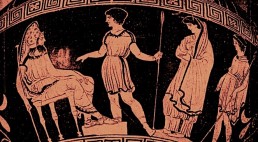Antigone in the Elevator
It’s obvious that an architect must follow law, ethics and the principles of fairness in any performance of his work. However, in the events of life he may be faced with cases of conscience. For example, what if you had to choose between doing something unlawful or saving a life?
This may seem to be an exaggeration, and it is a bit so, but it frames synthetically a rather complex but real situation.
Many years ago a parish priest had a severe heart attack. He survived, but he lived in a high floor apartment of an old building with winding stairs, where was impossible to install an elevator or a stair device. This caused many problems also because many people needed him all the time, and he did not deny himself to anyone; but so every day the heart risk was renewed. For prudence’s sake he should have left the parish and moved, but this was the last thing he wanted to do and that no one wished for, because he was the glue of a very active community that he had managed to create over the years overcoming many difficulties.
One day, however, someone discovered that there was the possibility of placing an elevator in a hollow that no one had considered. Unfortunately, however, for such a modification, although hidden and very little invasive, it would have been bureaucratically very difficult to get the necessary approvals, and in any case in a too long time.
So, for a simple elevator, in some way the ancient question of Antigone was proposed again: the law said one thing, the heart another. What to do?
Everyone in the parish decided to follow Antigone’s example.
The priest abstained.



